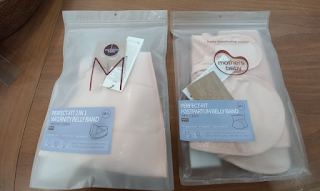A New Parent's Guide to Newborn Care : Jaundice + Umbilical cord care + feeding
On July 31, a young couple from Uzbekistan joyfully welcomed a healthy baby boy at our clinic.
They confided in us that they were alone in Korea, lacking the presence of family or friends to guide them through their first night together with their newborn.
The infant caregivers took great care to equip them with all the essential information for at-home care.
Comprehensive, step-by-step instructions were given to ensure the well-being of their baby, and I wish to share this information for future reference.
Precautions for Jaundice
Infants may experience jaundice from birth up to 7 days.
Hence, keeping a bedside light on is crucial to regularly monitor the infant's skin colour.
Should you notice yellowing of the baby's skin on their face and chest, vigilant observation is recommended.
If the yellow hue begins to extend to the belly button, it is advisable to promptly consult the nearest pediatrician for an evaluation.
Umbilical Cord Care
The umbilical cord typically detaches naturally from a newborn within two weeks of birth.
After detachment, there might be some yellow discharge and slight bleeding for up to three weeks.
If an unpleasant odour emanates from the umbilical cord area, which is a concerning sign, it is advisable to seek the nearest pediatric care.
For umbilical cord care following a shower, it is important to disinfect the base of the cord using alcohol-soaked cotton. It's crucial to ensure that the baby's body is thoroughly dried before this step.
To facilitate a speedy healing process, it is vital to ensure the complete dryness of the area.
Achieving this involves tucking the waistband of the diaper well below the base of the cord instead of leaving it atop.
Infant Fever and Vomiting
Infant fever and vomiting are common occurrences.
While it is normal for infants to drool after a meal, persistent vomiting more than once a day could indicate an issue that requires attention.
Feeding
It is of utmost importance to remember that an infant's digestive system functions differently from an adult's.
Consequently, it is essential to burp the baby after feeding and refrain from placing them on their back.
Instead, it is advisable to tilt them to one side with proper back support from cushions and pillows, followed by rotation to the other side.
Breast milk production typically commences on the 4th or 5th day after birth.
Initiating feeding with breast milk and subsequently introducing formula can ensure adequate nourishment.
Measurement of Formula Powder Quantity
During measurements, it is recommended to use one spoon per 20 ml. Feeding should occur every 3 hours.
2 measured spoons + 40 ml until the 3rd day after birth
2 measured spoons + 50 ml on the 4th / 5th day
3 measured spoons + 60 ml on the 6th / 7th day
During this period, the production of breast milk will likely increase, naturally allowing for a reduction in the volume of formula milk.
***
This information will serve as a valuable resource for the couple as they navigate the care of their precious newborn.
.jpg)




Comments
Post a Comment